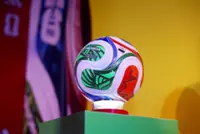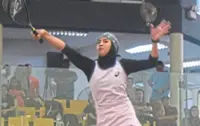Soccer Football - Bundesliga - Borussia Dortmund v Eintracht Frankfurt - Signal Iduna Park, Dortmund, Germany - April 22, 2023 Borussia Dortmund president Hans-Joachim Watzke before the match REUTERS/Thilo Schmuelgen/File Photo
BERLIN (Reuters) - Germany still have time to recover from their bad international run of the past few years and play a successful Euro 2024 on home soil next year but they must rediscover their traditional strengths, the country's Football Association Vice President Hans-Joachim Watzke said on Wednesday
The Germans, four-time world and three-time European champions, have been eliminated in the first round in their last two World Cups including in Qatar in December.
Already a subscriber? Log in
Save 30% OFF The Star Digital Access
Cancel anytime. Ad-free. Unlimited access with perks.





